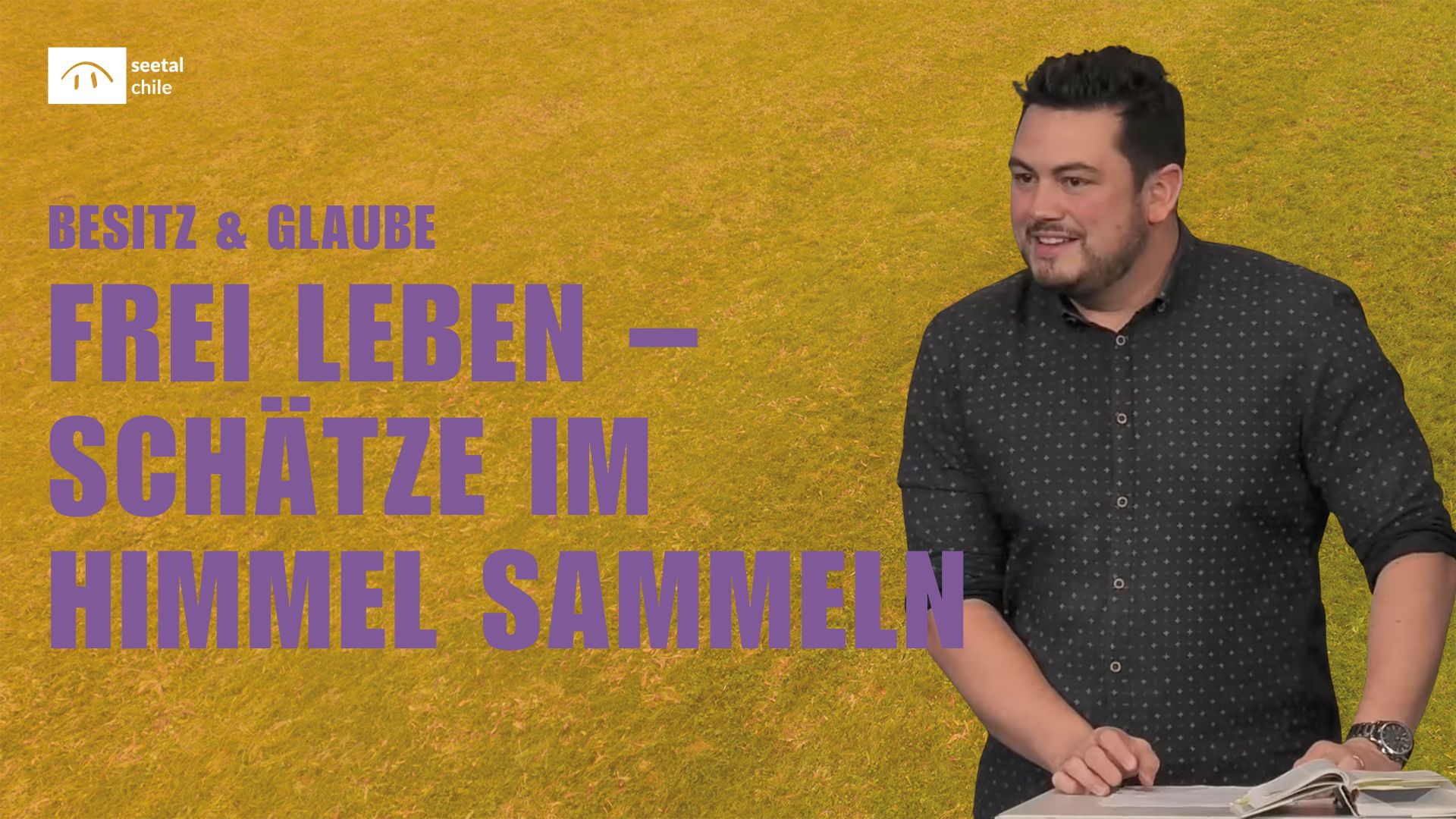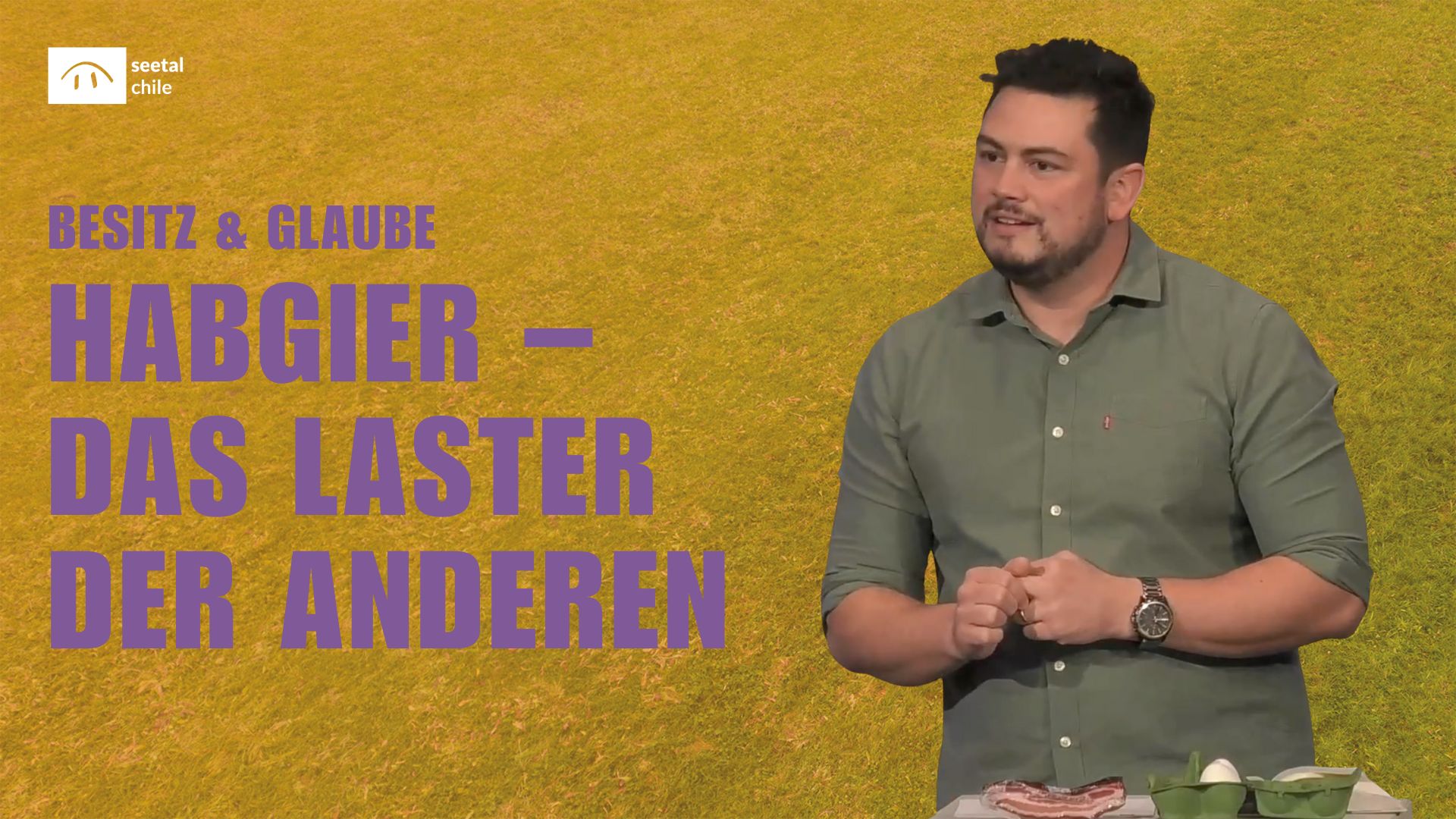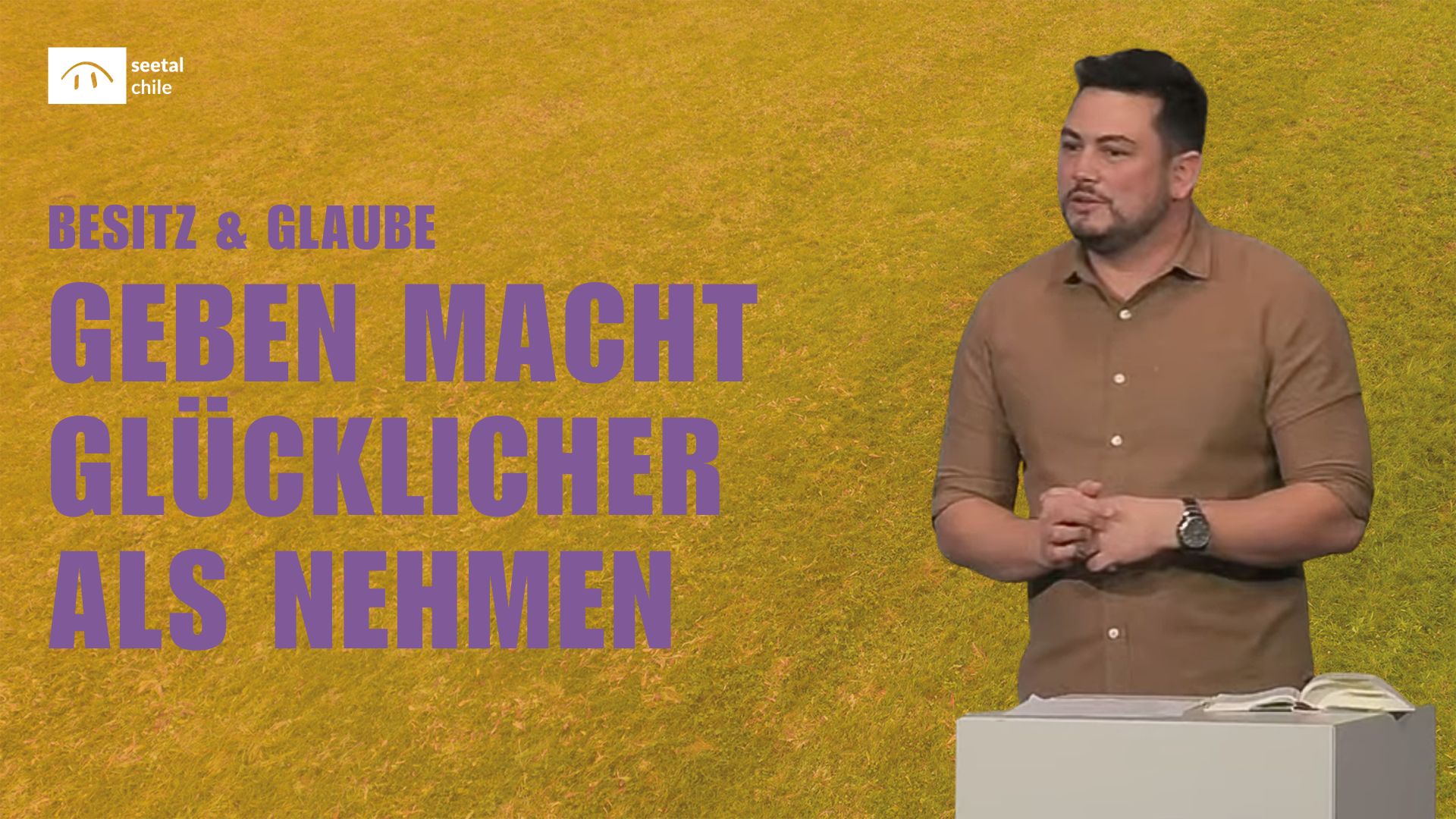Christmas – word and light for the world!
Series: Holy – Holy – Holy | Bible text: John 1:1–14,
Jesus Christ is the Word. As such, he was there from the beginning. He gave the world his light and thereby also life. His light shines in the darkness and cannot be overcome by it. At Christmas we celebrate the greatest gift. We celebrate that the Word became a man and lived among us. If we now believe in the word of Jesus Christ, i.e. accept him as a gift from God, then we become children of God.
My first godson Bueb has also left school by now. But I can still remember our first shopping trip for his Christmas present. We were out and about together for the first time in Thun and wanted to find a present for him. My idea: we spend the morning together, go shopping for a present, walk through the town, have a hot chocolate somewhere to warm up. His idea: «Yay, I’m getting a present!». But at that point I wasn’t yet aware of the different ideas. In reality, it looked like this. We both went into the first toy shop and he saw something he wanted. We couldn’t leave the shop until I bought it for him. Now I got stressed – because it wasn’t expensive at all, but now I had just under three hours with the boy and no plan for what we were going to do in that time.
How are you doing with Christmas? Was it stressful for you? Someone recently said to my wife that we shouldn’t be surprised if Christmas is stressful, because Christmas has always been stressful. Or how did the pregnant Maria fare on the long journey?
In the beginning was the word
I would like to go back with you to this shop. Imagine these shelves full of presents. But if they lack any connection to the shining eyes of children, they are not a source of joy in and of themselves. But Christmas is precisely the festival of presents.
This morning we are immersing ourselves together in a Bible text that is very often read at Christmas, but doesn’t actually have much to do with Christmas. «In the beginning was the Word. The Word was with God and the Word was God» (John 1:1 NLB). Three things are communicated to us here. Firstly, that the Word was there from the beginning. It is not abstract, as we otherwise imagine words to be, but it is an object. Secondly, the Word is with God. It is localised. Thirdly, this word is God. And this word is Jesus Christ, whose birthday we celebrate at Christmas. The evangelist John, who wrote this text, uses this formulation to refer to Genesis 1:1, i.e. to the first verse of God’s written word. Other evangelists, when they speak of Jesus, start either at the birth or with Abraham. John, however, has a different approach. He starts right at the beginning. In this first verse of John’s Gospel, he makes two references to the Old Testament. Firstly, to creation: «In the beginning God created the heavens and the earth». (Genesis 1:1 NLB). Secondly, through the use of the Greek word «logos». This means «word». Generally speaking, but when John uses it, he puts it on the same level and context of meaning as the Old Testament wisdom (Proverbs 8).
John creates a connection and shows that the man who appears as Jesus Christ is God. He is identical with him (John 1:1). He is there from the beginning. «He was with God in the beginning» (John 1:2 NLB). In doing so, he joins the Old Testament. «By the word of the Lord the heavens were made and the stars were created by his command» (Psalm 33:6 NLB). Unlike the other evangelists, John starts his description of Jesus Christ from the original state before creation. Jesus Christ has always been God and has been so from the beginning.
The Gospel of John has its own way of talking about Jesus Christ. The English theologian N.T. Wright says about this book. «This book is like a pond in which a child can safely splash around, but which is also deep enough for an elephant to swim in» (N.T. Wright). This is exactly how we encounter Jesus Christ at and around Christmas. On the one hand, lovingly as a baby, he must be protected, sheltered and well cared for. On the other hand, pre-existent even before the first people in the world. He is even presented as the origin of the world! Everything lies in this pre-existence. «Through him all things were created that are. There is nothing that he, the Word, has not created» (John 1:3 NLB). The entire creation came into being through the Word. God spoke – and it happened. This word, which is described here, is powerful. Just as an evil word can destroy a great deal. Yes, people often get caught up in words and not in deeds. «So it is with my word that comes from my mouth. It will not return without fruit, but it will do what I want and fulfil what I have sent it for» (Isaiah 55:11 NLB).
Life from the light
Once again about the gifts in the shop. As soon as a gift meets a recipient, it brings a ray of joy. My wife and I have a family where we are godparents to all three children. Last year, we gave the eldest a present and his reaction was: «So great! I’ve always wanted this!» We had hit the nail on the head with this gift. It wouldn’t have done anything on the shelf, but when it hit him, it brought joy. It’s the same with Jesus Christ, if the word simply comes into the world but is not associated with people, then there is no joy.
But Jesus Christ is more than just the Word, it is not empty, it is a life-creating Word. At creation, this Word created life. «Life itself was in him, and this life gives light to all people» (John 1:4 NLB). The word of God does not come back empty. Rather, it creates life. This life gives people light. Signs of light are hope, guidance and a stark contrast to darkness. The life that brings this about is in Jesus Christ. «It was from the beginning, we have heard it and seen it with our own eyes, we have looked at it and touched it with our hands: the word of life. Life has been revealed to us and we have seen it. And now we testify and proclaim eternal life to you. It was with the Father, and then it was revealed to us» (1 John 1:1–2 NLB). Jesus Christ was not only there from the beginning of time, he is also there for eternity. Jesus is the Word, light and life.
Life is in Jesus Christ and from this life comes light (John 1:4). Conversely, it can also be said that there is no life outside the light. «The light shines in the darkness, and the darkness could not extinguish it» (John 1:5 NLB). On the one hand, darkness is like a lack of light – I can’t extinguish darkness, but I can’t extinguish it either. Because the adversary of God is real and not just an absence of something. The light of Jesus Christ shines in all darkness. This light is hope.
Around 1815 there were major upheavals in Europe. There were major changes in Salzburgerland. The country was emaciated after the war with Napoleon. A new border divided Bavaria and Austria. Boatmen, who had previously had the privilege of transporting salt, lost this and were left with nothing. Many people became destitute. During this traumatic time, the assistant pastor Franz Mohr wrote a poem, which was set to music in 1818. Exactly 205 years ago to the day, this song was sung for the first time and people were thrilled. It is called «Silent Night, Holy Night». This song inspired people. It is the story of the light that shone into a dark world. The darkness was not gone in Salzburgerland, but it had to give way to hope.
When Jesus Christ came into the world and was here, he was not accepted. He shone like a light in the darkness, but people did not recognise him and did not accept him. «But although the world was created through him, the world did not recognise him when he came. He came into the world that belongs to him, and his own people did not receive him» (John 1:10–11 NLB).
Believing in Jesus means accepting him as a gift from God
As already mentioned, our gift for Bueb, the eldest godfather and godfather, really hit the spot last year. He was so happy. His younger brother was just under 2 ½ years old at the time and unwrapped his present. When he unwrapped it and looked at it, his big brother’s reaction was immediate: «Wow. You’ve got a really great present!» We had to laugh quite a bit. «Wow. You’ve got that really great!» This is exactly what Christmas is all about in the truest sense of the word. At Christmas, we all got a mega great present that we didn’t choose ourselves, but that we so desperately needed. This is what we could also wish each other at Christmas. Not «a blessed Christmas», but «Jesus Christ came into the world! You received this gift in an amazing way!» Perhaps a little clumsy, but no less true.
Towards the end of the passage in verse 14 we find the summary. «He, who is the Word, became man and lived among us. He was full of grace and truth and we became witnesses of his glory, the glory that the Father gave him, his only Son» (John 1:14 NLB). This one verse is very comprehensive and contains several points.
The Word became man. The Luther translation says «And the Word became flesh […]» (John 1:14 LUT). Jesus Christ became a man of flesh and blood in deed and truth. With us, everything is often very cerebral. What I think and feel is important. But faith is more than just something spiritual, it is a fact. For example, it may not be a compelling criterion whether I have ever been to Israel. But when I walk the streets where Jesus walked, when I am in the places where he was, I gain a new, different approach. It is also no coincidence that many examples of Jesus have to do with everyday objects.
Jesus Christ lived among us. In the Old Testament, God camped among the Israelites in the mobile tabernacle and when they had reached their land and settled down, after some time he lived in the temple. In the New Testament, God now lives among people in Jesus. And God will continue to dwell among people in the future. «I heard a loud voice calling from the throne: Behold, the dwelling place of God is now with men! He will dwell with them and they will be his people and God himself will be with them» (Revelation 21:3 NLB).
Jesus Christ was full of grace and truth. Grace means granting something to someone without the expectation of retribution or reciprocity. It is undeserved. The truth of the New Testament is closely related to the understanding of faithfulness in the Old Testament. There, faithfulness means a truth that is real and therefore proves to be reliable, consistent and sustainable.
Jesus Christ was full of glory in this world. Glory means the honour of God in this world. In the Old Testament, this is what becomes visible of God’s majesty and glory in his revelation to people. In the Old Testament, the place where the glory of God becomes visible to people is the temple. In the New Testament, Jesus Christ becomes this place.
Let’s get back to the present, which we all got as a great gift. The question is whether there are any entry requirements. «But to all those who received him and believed in his name, he gave the right to become children of God. They became so neither by descent nor by human endeavour or intention, but this new life comes from God» (John 1:12–13 NLB). Believing in Jesus means accepting him as a gift from God. What does it take to receive this gift? It doesn’t require a certain lineage. No human endeavour and also no good will that is displayed. Instead, the gift of life comes from God himself. We can only get it mega great. All we can do is say yes and believe in Jesus Christ. In other words, accept him as a gift from God.
Possible questions for the small group
Read the Bible text: John 1:1–14
- How stressful was the Christmas period for you? Were you able to look forward to Christmas?
- Do you understand the statements from John 1:1? Try to reproduce the three statements in your own words.
- What does it mean when the Word, who created everything in the world, meets you personally in Jesus Christ?
- The light of God shines in all darkness. Where do you want more light in your life?
- What could you draw hope from in your current darkness?
- When you read John 1:14. Which point appeals to you the most (Word became man; lived among us; full of grace & wisdom; glory)? Why?
- At Christmas we received Jesus Christ in a mega great way – what is your answer?




